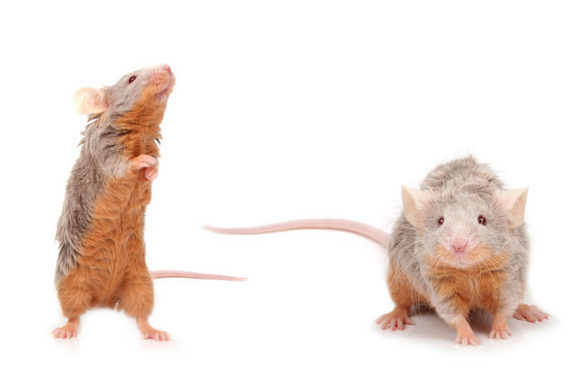Not in the Mood: Study in Mice Sheds Light on Human Libido

Get the world’s most fascinating discoveries delivered straight to your inbox.
You are now subscribed
Your newsletter sign-up was successful
Want to add more newsletters?

Delivered Daily
Daily Newsletter
Sign up for the latest discoveries, groundbreaking research and fascinating breakthroughs that impact you and the wider world direct to your inbox.

Once a week
Life's Little Mysteries
Feed your curiosity with an exclusive mystery every week, solved with science and delivered direct to your inbox before it's seen anywhere else.

Once a week
How It Works
Sign up to our free science & technology newsletter for your weekly fix of fascinating articles, quick quizzes, amazing images, and more

Delivered daily
Space.com Newsletter
Breaking space news, the latest updates on rocket launches, skywatching events and more!

Once a month
Watch This Space
Sign up to our monthly entertainment newsletter to keep up with all our coverage of the latest sci-fi and space movies, tv shows, games and books.

Once a week
Night Sky This Week
Discover this week's must-see night sky events, moon phases, and stunning astrophotos. Sign up for our skywatching newsletter and explore the universe with us!
Join the club
Get full access to premium articles, exclusive features and a growing list of member rewards.
Pain seems to discourage female mice from having sex, but it does nothing to stop males from copulating, according to a new study.
In the study, female mice that were in pain were less motivated to have sex, whereas males that were also in pain still wanted to copulate. The reason likely has to do with the different evolutionary pressures that male and female mice face, the researchers said.
A similar biological, rather than cultural, mechanism might be at play when it comes to human sexual desire, they said.
"Since giving birth and raising babies has costs associated with it, you might expect that they [female mice] would — or at least their genes would want them to — make sure that they are in pretty good shape," to have babies and take care of them, said study author Jeffrey Mogil, of McGill University in Canada. And pain might signal to female mice that "they might not be in perfect health, and it might not be a good idea to have babies right now," Mogil said.
"Whereas in the males, as long as you can get through conception, your job is done," and the health of the males does not really matter after that, Mogil told Live Science. [Animal Sex: 7 Tales of Naughty Acts in the Wild]
To test sexual motivation in mice, the researchers put male and female mice in a mating chamber and divided the males and females with a barrier containing openings that were too small for the males to squeeze through, but big enough for the females to get through to the males if they wanted to. This way, the researchers were able to make sure that any sex that took place was initiated by the females.
The researchers also tested sexual motivation in the male mice by placing them in an undivided chamber where they had unlimited access to female mice. The female and male mice whose libidos were being tested received injections of substances that caused inflammatory pain in their genitals and other areas of their bodies, such as their hind paws, tails or cheeks.
Get the world’s most fascinating discoveries delivered straight to your inbox.
The detrimental effect of the pain on the female mice's libidos was reversed once the researchers gave the females painkillers or libido-enhancing drugs.
The findings may provide clues about how libido works in women, the researchers said. Although some people believe that sexual desire in women (or the lack of it) is mainly regulated by cultural expectations, this study suggests that the mechanism of certain sexual behaviors is rooted in biology, the researchers said.
The study may also help to shed light on certain health issues in people, Mogil said.
In humans, a loss of libido occurs frequently in chronic pain patients, and the animal experiments in the study may help researchers better understand how this works, he said.
The researchers also found that the two drugs they tested as libido enhancers in mice, apomorphine and melatonan II, only had a libido-enhancing effect on the mice when they were in pain. "So, we think that this might be a more sensitive way to test potential libido-enhancing drugs in the future," Mogil said.
The study is published in the Wednesday (April 23) issue of The Journal of Neuroscience.
Follow Agata Blaszczak-Boxe on Twitter. Follow Live Science @livescience, Facebook & Google+. Original article on Live Science.
 Live Science Plus
Live Science Plus










